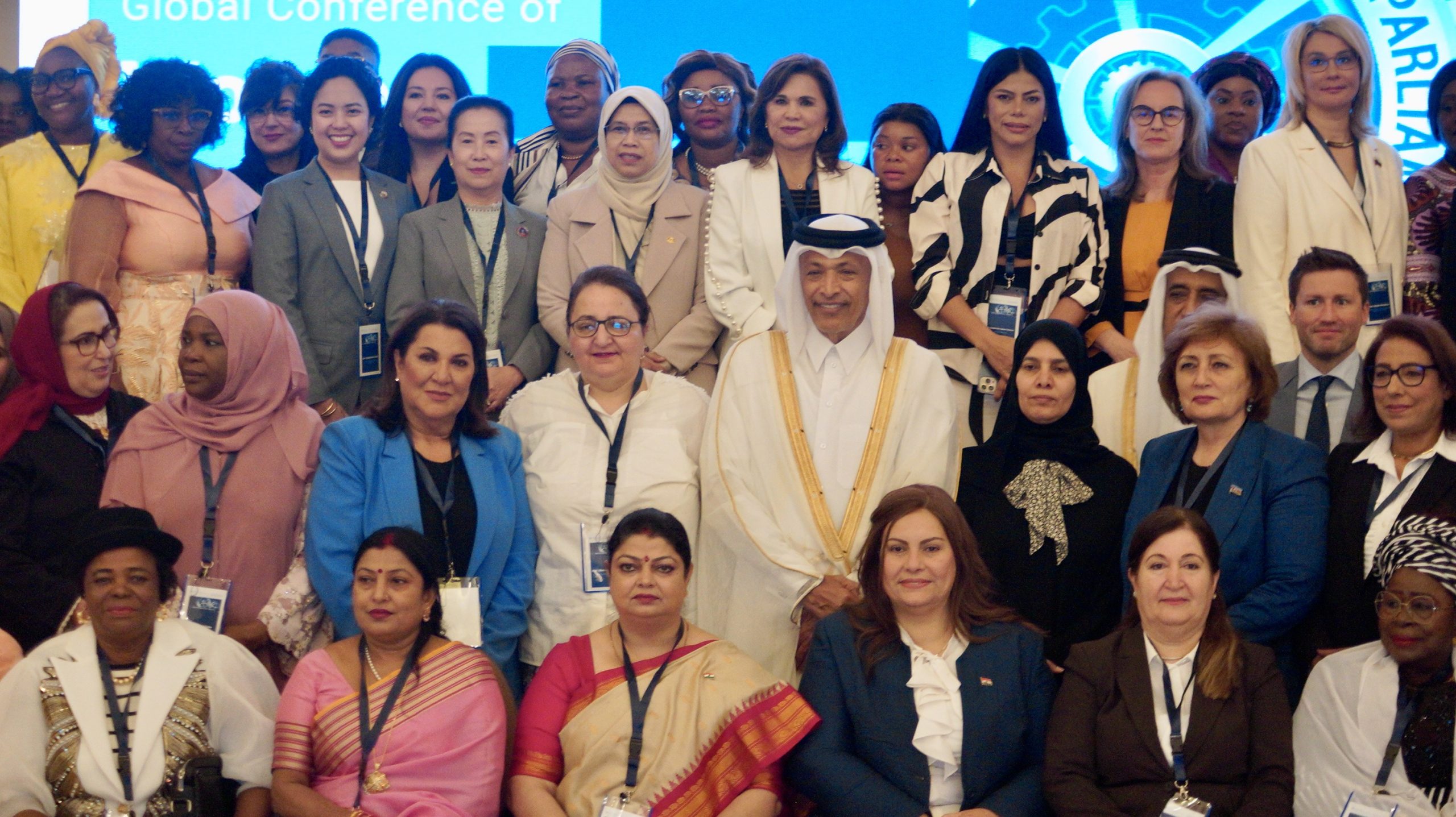The crucial role of women parliamentarians in achieving justice globally was the central focus of the discussions of the UN gathering in Doha.
Qatar has called out Israel’s ongoing violations of Palestinian women’s rights, particularly in the besieged Gaza Strip, during the United Nations’ Global Conference of Women Parliamentarians.
On Wednesday, the two-day conference in Doha commenced with the participation of women parliament members from across the world.
The event in Qatar is taking place under the title “The Role of Women Parliamentarians in the Development, Implementation, and Oversight of Counter-Terrorism and Prevention of Violent Extremism Legislation, Policies, and Strategies”.
The conference seeks to promote the effective participation of women parliamentarians while “preventing violent extremism conducive to terrorism” through numerous discussions.
Hamda Al-Sulaiti, Qatar’s Deputy Speaker at the Shura Council, highlighted Israel’s violations against Palestinians in the Gaza Strip, where the Israeli war, widely referred to as a genocide, has persisted for nearly nine consecutive months.
“We call on this conference to discuss ways to stop human rights violations and massacres committed by the occupying entity in Gaza against women, youth, girls and children,” Al-Sulaiti told the meeting.
“I would like to stress the importance of our support for our brothers and sisters in Gaza and occupied Palestine, and our conference must come out with a recommendation about a ceasefire and the violence to which our Palestinian sisters are exposed,” she added.
The Israeli army has killed at least 37,718 people – mainly women and children – in the Gaza Strip since October 7.
Palestinian women have been subjected to harrowing violations by the Israeli occupation forces.
According to the UN, at least 183 women per day are giving birth in Gaza without pain relief whereas lactating mothers struggle to feed their babies.
A separate UN report in February sounded the alarm over the inhumane treatment of Palestinian women imprisoned by Israeli forces in Gaza and the West Bank. Some women reported cases of sexual assault and others were “reportedly threatened with rape and sexual violence”.
On Tuesday, Al Jazeera shared disturbing footage of an Israeli military dog attacking an elderly Palestinian woman in her home in the Jabalia camp, the northern part of the Gaza Strip.
The woman has yet to receive treatment for the severe injuries caused by the attack after Israel’s war and complete blockade led to the total collapse of the Strip’s health sector.
Crucial role of women parliamentarians
The crucial role of women parliamentarians in achieving justice globally was the central focus of the discussions in the UN gathering in Doha.
In her opening address, Guadalupe Megre, the Officer in Charge of the Special Projects and Innovation Branch at the UN Office of Counter-Terrorism, highlighted women’s role in leading “fundamental change”.
“Women leaders, including parliamentarians, have been at the forefront of fundamental changes, bringing unique perspectives and insights to the governance and legislative processes,” Megre told the event.
“These violent attacks are not only attacks on individuals, but on the very essence of democracy and equality. Enhancing counterterrorism capabilities overall helps prevent these incidents by addressing the broader environment of insecurity that allows such political violence to flourish,” she stressed.
According to the UN, women are still “underrepresented at all levels of decision-making worldwide” including executive government positions and national parliaments.
“At the current rate, gender equality in the highest positions of power will not be reached for another 130 years,” the UN’s website says.
As of June, there are 27 countries where 28 women serve as heads of state or government, whereas 18 countries have a woman head of state, and 15 others have a woman head of government.
According to Qatar’s foreign ministry, the Gulf state was the first country in the Gulf Cooperation Council to enable women to work as judges, with women representation in the Supreme Judicial Council exceeding 48 percent.
The percentage of women occupying senior positions in the judiciary administration reached 69 percent by 2023. Qatari women also occupy 30 percent of decision-making positions whereas 52 percent others hold specialised positions.







